How to Protect Bitcoins Part 01
Digital currency such as Bitcoins can seem especially vulnerable to theft. However, in many ways it's no more vulnerable than the cash you may carry around in your physical wallet. In most cases you can adequately protect your Bitcoins using basic safety measures that don't even require a lot of tech know-how. If you're truly concerned about the security of your Bitcoin investment, you may want to keep the bulk of it offline.
Method 1 {Enabling Basic Security Options} :-
1: Carry only small amounts for daily use. Treat your online Bitcoin wallet like the physical wallet you carry in your pocket or purse. Just as you wouldn't routinely carry around thousands of dollars in cash, don't carry a lot of Bitcoins online.[2]
Generally, avoid keeping more Bitcoins in your wallet than you would be willing to lose – unless you're planning on spending or trading them immediately.
Similarly, if you're keeping all (or most of) your Bitcoins online, use several different services so you're not keeping all your Bitcoins in one place. If one is targeted by hackers, you won't lose everything.
2: Create a strong password and change it often. Perhaps the simplest form of security is your password. It should be long, with both capital and lowercase letters, numbers, and special characters. Make it difficult to guess, but also easy for you to remember.[3]
Another option is to use a password manager (your computer may have one, or you can download one for free) to suggest and keep passwords. These passwords are encrypted and will be automatically entered for you. If you use a password manager, make sure you have a strong password on your computer.
3: Set up a separate email account solely for online accounts. Before you set up an account with an exchange or online wallet service, open a unique email address. Use random letters and numbers or a phrase that could not be associated with you as the address.[4]
If hackers get user data from the service, they won't get your personal email address or any other information about you. Keep as anonymous as possible on Bitcoin exchanges.
4: Use two-factor identification with online storage. With two-factor identification, you must verify your identity through another device before your wallet can be accessed or a transaction completed. This typically involves the wallet service sending you a code.[5]
The service typically sends a code to your mobile phone in a text message. You have a few minutes to enter the code before it expires.
When you set up two-factor identification, make sure the code is being sent to a device that you always have access to, and that no one else routinely uses.
5: Check the security of online services carefully. Bitcoin exchanges and online wallets have fallen victim to security breaches that cost users thousands of Bitcoins. Once Bitcoins are stolen, it is impossible to get them back.[6]
Hackers will look for vulnerabilities in the service's architecture and exploit them. As a user, you may have no way of knowing where or if these vulnerabilities exist. However, you can evaluate the site's history and reputation.
Online wallets and exchanges are not banks, and do not offer the same levels of protection that banks do. Nor are they subject to the same regulations. Keep that in mind when using them to store your Bitcoins.
6: Keep all your software up to date. Software manufacturers routinely push out patches and security upgrades meant to address vulnerabilities that could be exploited by hackers. Download updates regularly, not only for your Bitcoin software but for any systems you run Bitcoin software on as well.[7]
Enabling automatic updates is the easiest way to make sure your software is consistently up to date. Set the automatic update to run at a time when it won't disrupt your use of the device.
7: Require multiple signatures. Some exchanges and wallet services allow you to select several people (usually 3 to 5) who must be contacted for approval before a transaction can take place. Since no one person controls the transaction, the risk of theft is decreased.
This also makes it more difficult for you to complete a transaction, because you must contact and await approval from everyone you've selected.
8: Protect your mobile phone. While many basic security measures focus on your wallet and the devices where you access it, your phone can also be used to gain access to your wallet. Hackers can port your phone number to a device they control and use this to make an end-run around your two-factor identification.[9]
Call your mobile phone provider and find out what security options are available, then set up everything they have.
Never talk about Bitcoins or other cryptocurrency in public, especially on social media, and never give someone your phone number online.
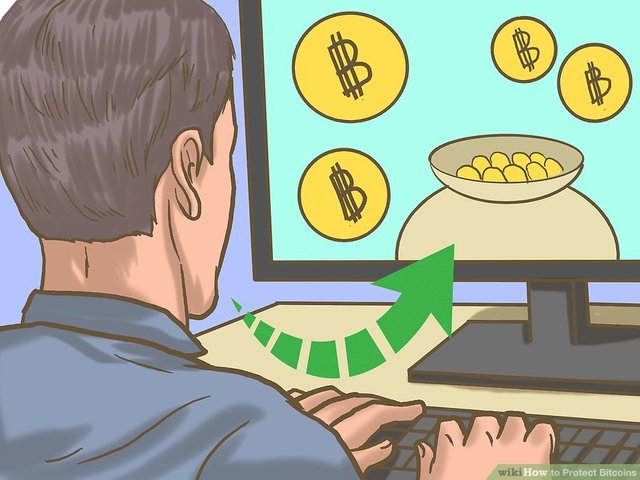
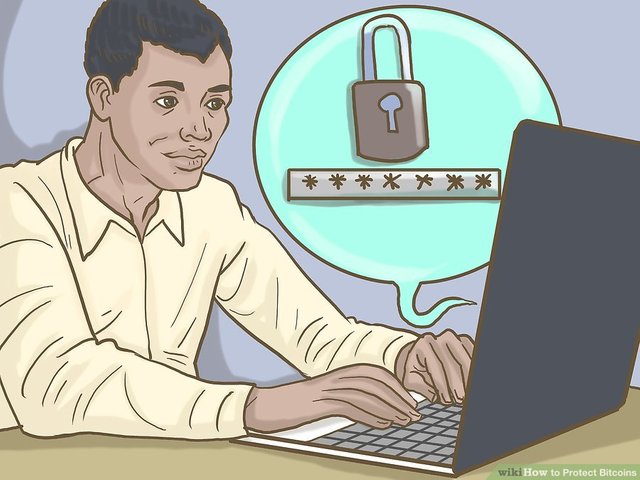
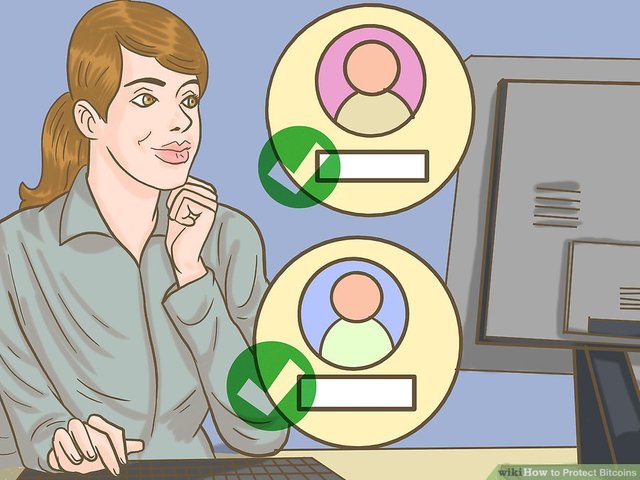
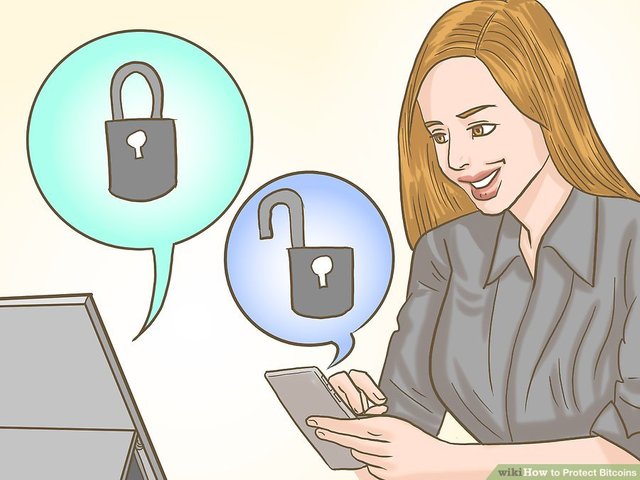
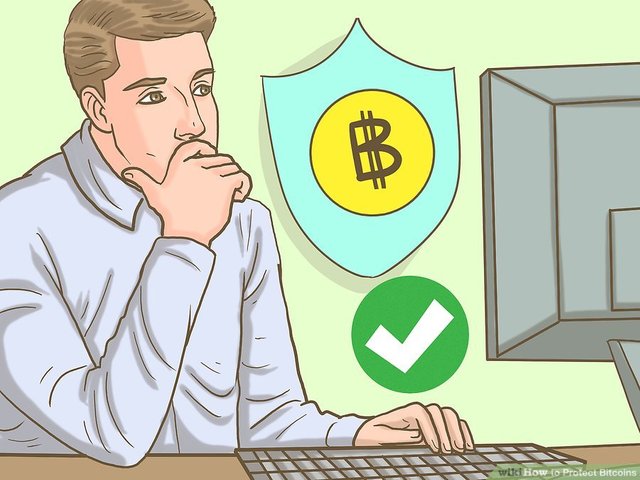
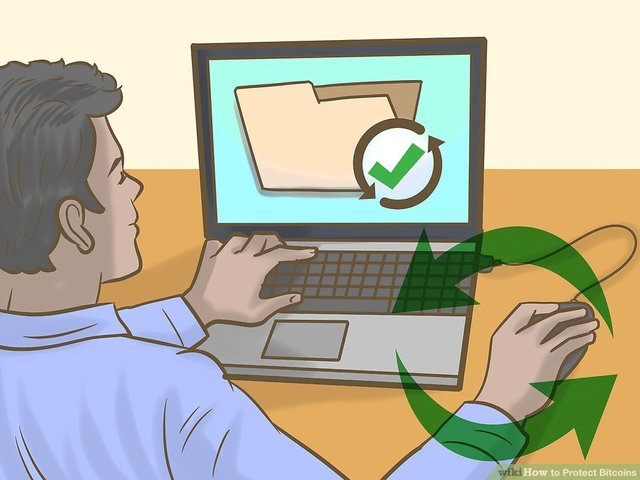

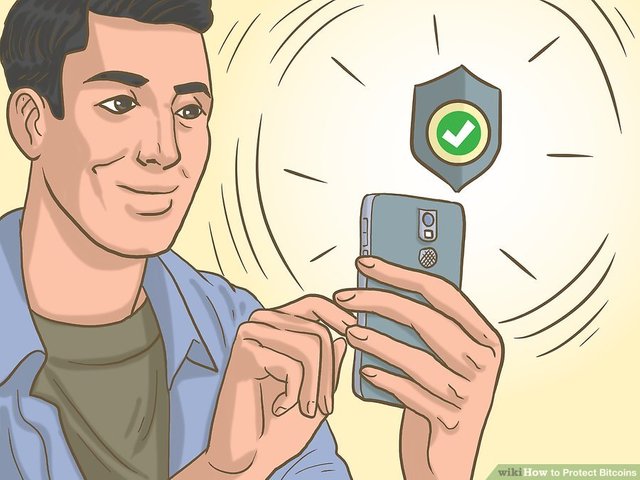
bitcoin 35k end off year